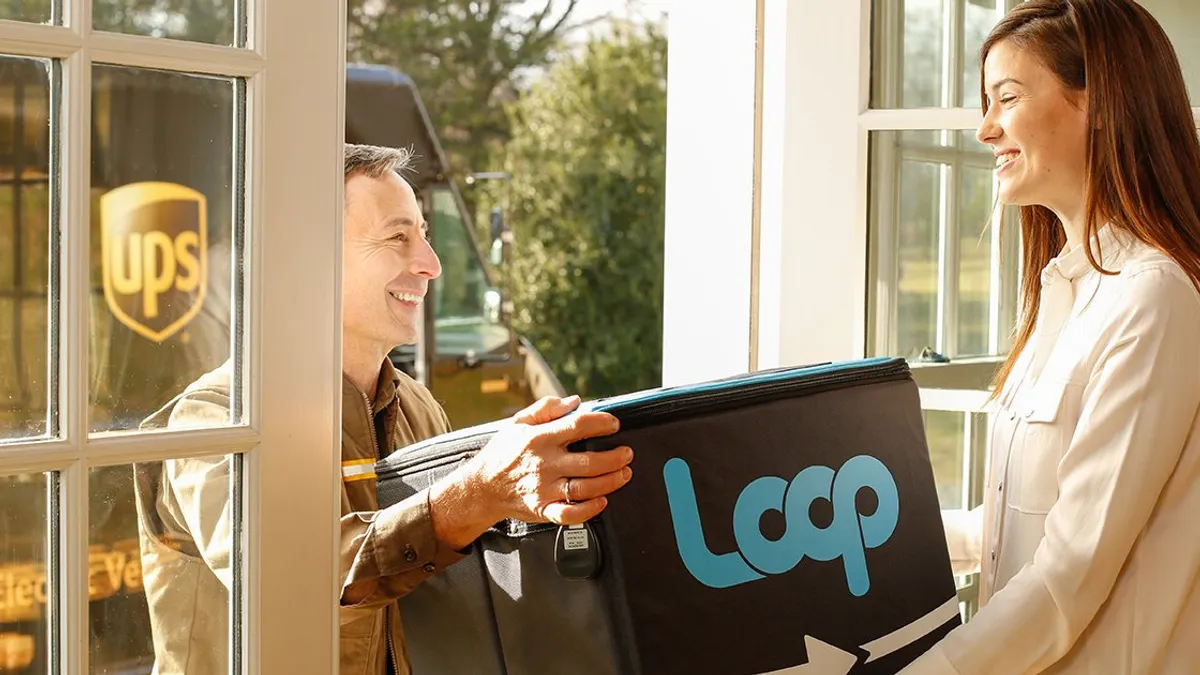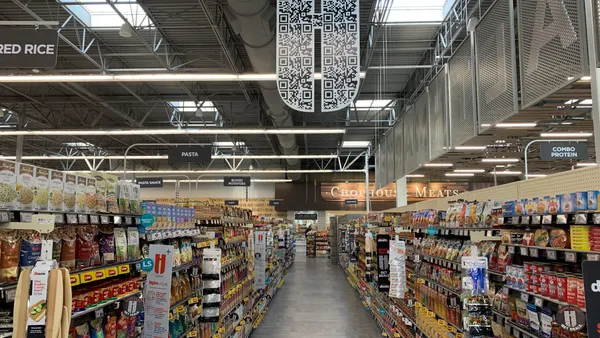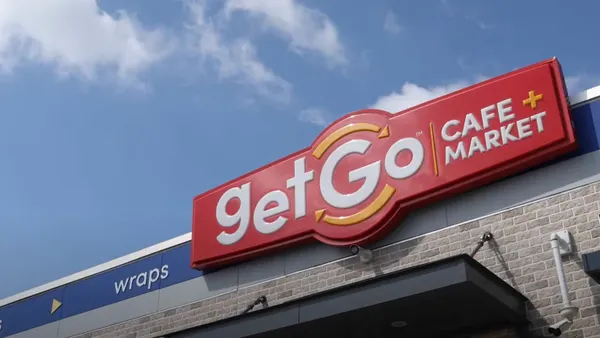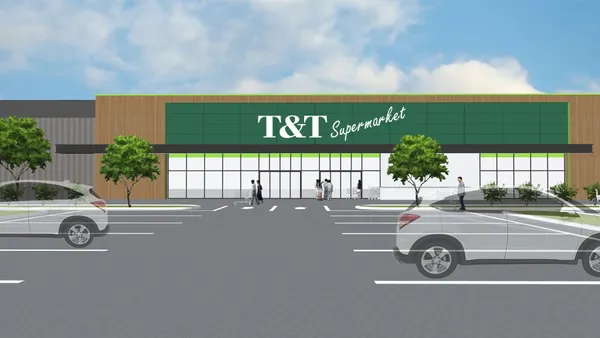Dive Brief:
- Kroger and Walgreens have teamed up with reusable packaging platform Loop to let online shoppers purchase products that come in refillable containers, according to a company press release. The companies will pilot the new "circular packaging platform" in New York, New Jersey, Pennsylvania, Maryland and Washington D.C. starting May 21.
- Loop uses reusable glass or metal containers that are shipped to consumers in a special tote. After the consumer is finished with the product, Loop picks up the empty container so that it can be cleaned and filled for reuse.
- Kroger shoppers who participate in the program will have access to more than 100 products from leading brands like Tide, Dove and Hellman's mayonnaise. The retailer hinted at the possibility of also creating an in-store Loop "experience" at some point in the future.
Dive Insight:
While companies throughout the food industry have long made recycling a centerpiece of their sustainability efforts, Loop introduces the possibility of going a step further into a reusable or "circular" approach to packaging.
The initiative, which debuted at the World Economic Forum in Davos back in January, is starting out with 1,000 products and has plans to expand to more items and locations. Current partners include PepsiCo, Unilever, Coca-Cola European Partners, Mondelez International and Danone.
With package-free stores cropping up and retailers dialing back on their plastic use, the integration with Kroger seems particularly well-timed. According to a recent Nielsen survey, 48% of consumers say they would alter their consumption habits to improve the environment. A recent study commissioned by Evergreen Packaging, meanwhile, found that 59% of consumers factor sustainable packaging into their purchasing decisions.
According to the Environmental Protection Agency, packaging creates 23% of landfill waste and pollution.
As innovative as Kroger and Loop's partnership is, consumers who shop online for groceries for convenience may find the extra steps in Loop's model to be cumbersome. What seems more promising is the in-store program the news release hinted at, which would presumably involve customers buying products and then returning them to stores for cleaning and refilling. The process is similar to what many farmers markets offer, and builds on the reusable bag habit so many shoppers have adopted.
In 2018, Kroger became the first large-scale conventional grocer to commit to phasing out single use plastic shopping bags. The company has also made a dedicated effort to fight food waste, including launching an innovation fund to find solutions earlier this year. It also launched an ugly produce brand last year called Peculiar Picks made up of fruits and vegetables that don’t quite meat the retailer’s aesthetic standards.
Several grocers have committed to cutting plastic from their product offerings, with Whole Foods announcing just days ago that it will phase out plastic straws from all 500 of its store locations in addition to switching to smaller plastic bags in its produce department and different containers for its rotisserie chickens. Walmart, Aldi and Trader Joe’s have also made recent efforts to cut down on single-use plastic in their stores.












